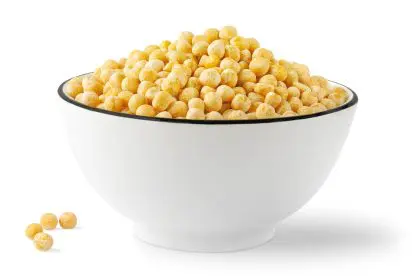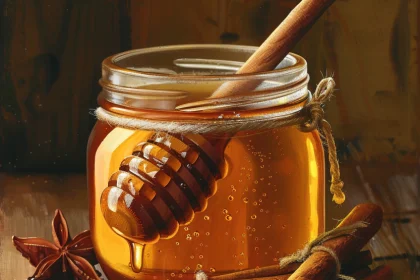The seemingly simple hairs lining your nose serve as sophisticated gatekeepers for your entire body. These tiny sentinels work around the clock to maintain your cardiovascular health through several remarkable mechanisms that scientists continue to study.
The natural filtration system
Like an intricate mesh screen, nasal hair catches dust, pollen, and other airborne particles before they can reach your respiratory system. This filtering action prevents your body from expending extra energy to process and expel foreign matter, ultimately reducing strain on your heart and circulatory system.
When allergens and pollutants are blocked effectively, your airways experience less inflammation and irritation. This cleaner breathing environment allows your cardiovascular system to function more efficiently, decreasing the risk of developing conditions like asthma or bronchitis that could burden your heart.
Your personal air humidifier
Inside your nose, hair performs a remarkable moisture-balancing act by capturing tiny water droplets from the air. This natural humidification process ensures that the air reaching your lungs maintains optimal moisture levels for healthy respiratory function.
The importance of properly humidified air extends beyond comfort – it’s crucial for efficient oxygen transfer throughout your body. When your respiratory system receives adequately moistened air, your heart doesn’t have to work as hard to maintain proper oxygen circulation.
Temperature regulation expertise
Your nasal hair participates in an intricate temperature control system that prepares incoming air for your lungs. Working in concert with other nasal structures, these hairs help moderate the temperature of each breath, protecting sensitive lung tissues from thermal shock.
This temperature adjustment process significantly impacts your cardiovascular function. When your body doesn’t have to expend extra energy warming or cooling incoming air, it reduces the overall workload on your heart, promoting more efficient circulation.
Infection prevention powerhouse
The coarse texture of nasal hair creates an effective barrier against harmful microorganisms. These natural defenders trap bacteria, viruses, and fungal spores before they can penetrate deeper into your respiratory system and potentially enter your bloodstream.
This protective function becomes particularly vital in preventing infections that could compromise heart health. Serious respiratory infections like pneumonia can place significant stress on your cardiovascular system, making your nasal hair’s role in pathogen prevention increasingly important.
The nitric oxide connection
Recent research has unveiled an unexpected relationship between nasal hair and nitric oxide production. This naturally occurring gas, produced in your nasal passages, plays a crucial role in cardiovascular health by helping regulate blood pressure and improve blood flow.
Nasal hair helps optimize this process by slowing down airflow through your nasal passages, allowing more time for nitric oxide to enter your bloodstream. This increased absorption time supports better heart function and may contribute to improved endurance and reduced risk of cardiovascular diseases.
Maintaining your natural protection
Supporting your nasal hair’s protective functions requires mindful care and attention to nasal health. Start with gentle cleaning practices that preserve these important protective structures. Avoid aggressive trimming or cleaning methods that could damage your nasal passages and compromise their defensive capabilities.
Staying well-hydrated helps maintain the moisture levels necessary for optimal nasal hair function. Consider using saline nasal sprays to support natural mucus production and keep nasal passages clean without causing irritation or dryness.
Environmental considerations
Protecting your nasal hair from environmental damage helps maintain its protective capabilities. Minimize exposure to harsh chemicals, smoke, and other airborne irritants that could impair nasal hair function. When working in dusty or polluted environments, consider wearing appropriate protective equipment to support your natural defenses.
The science of breathing smarter
Your nasal passages work as sophisticated air-processing centers, with each hair playing a vital role in the complex filtration system. Understanding this intricate process helps appreciate why maintaining healthy nasal hair becomes crucial for overall wellness.
Daily habits for optimal protection
Creating an environment that supports nasal health involves more than basic hygiene. Consider incorporating these practices into your daily routine to maximize your natural protective barriers:
Regular steam exposure helps keep nasal passages moist and functioning optimally. Something as simple as breathing in steam from your morning shower can support healthy nasal function. For added benefit, try adding a few drops of eucalyptus oil to hot water and breathing in the steam for several minutes.
Proper nose-breathing techniques enhance the effectiveness of your nasal hair’s protective functions. Practice breathing through your nose rather than your mouth whenever possible, especially during physical activity or sleep.
The immune system connection
Your nasal hair works in partnership with your immune system to create a robust defense network. The trapped particles in nasal hair trigger immune responses that help your body recognize and fight potential threats more effectively. This early warning system helps prepare your body’s defenses before harmful substances can reach more sensitive areas.
Modern threats and protection
In today’s world of increasing air pollution and environmental toxins, your nasal hair faces greater challenges than ever before. Urban environments, in particular, expose these natural filters to a complex mixture of pollutants that can strain their protective capabilities.
Consider using air purifiers in your home and workplace to reduce the burden on your nasal filtration system. This extra layer of protection helps your natural defenses work more efficiently and reduces overall stress on your cardiovascular system.
Exercise and nasal health
Physical activity impacts the effectiveness of your nasal protection system. Regular exercise improves blood circulation to nasal tissues, supporting their healthy function. However, intense exercise in polluted environments can overwhelm your natural filters, making it important to choose your workout location carefully.
Sleep position and nasal function
The way you sleep affects how well your nasal hair can protect you. Sleeping with your head slightly elevated helps optimize nasal drainage and maintains proper air flow through your nasal passages. This position supports the natural protective functions of your nasal hair while reducing strain on your cardiovascular system.
Seasonal considerations
Different seasons bring unique challenges for your nasal protection system. Spring pollen, summer humidity, fall allergens, and winter dryness each require specific adaptations to maintain optimal nasal health. Understanding these seasonal variations helps you adjust your care routine accordingly.
When to seek professional guidance
While nasal hair provides remarkable protection, certain situations warrant professional medical attention. Persistent nasal issues, frequent infections, or unusual changes in breathing patterns might indicate the need for expert evaluation to ensure your natural protective systems function optimally.
Future research directions
Scientists continue to uncover new aspects of how nasal hair contributes to overall health. Emerging research suggests potential connections between nasal hair function and various aspects of cognitive health, opening new avenues for understanding the full scope of this natural protective system.
Long-term health implications
Maintaining healthy nasal hair throughout your life contributes to better aging outcomes. Proper nasal protection reduces the cumulative impact of environmental stressors on your cardiovascular system, potentially supporting healthier aging and reduced risk of age-related health issues.
The role of diet
Your diet influences the health of your nasal tissues and, by extension, the effectiveness of your nasal hair. Foods rich in vitamins A, C, and E support healthy mucous membranes and help maintain strong natural barriers against environmental threats.
Global perspectives
Different cultures have long recognized the importance of nasal health, developing various traditional practices to support it. From nasal rinsing techniques to herbal treatments, these time-tested approaches offer valuable insights into maintaining optimal nasal protection.
Technology and protection
Modern technology offers new ways to support your natural nasal defenses. From advanced air quality monitors to specialized nasal care products, these tools can help you make informed decisions about protecting your respiratory and cardiovascular health.
Understanding and supporting your nasal hair’s protective functions represents an important investment in your overall health. By maintaining these natural barriers and adapting your care routine to changing circumstances, you help ensure optimal protection for your heart and entire body.

















